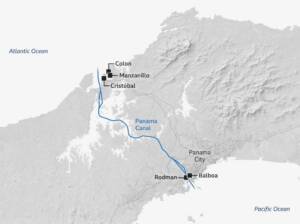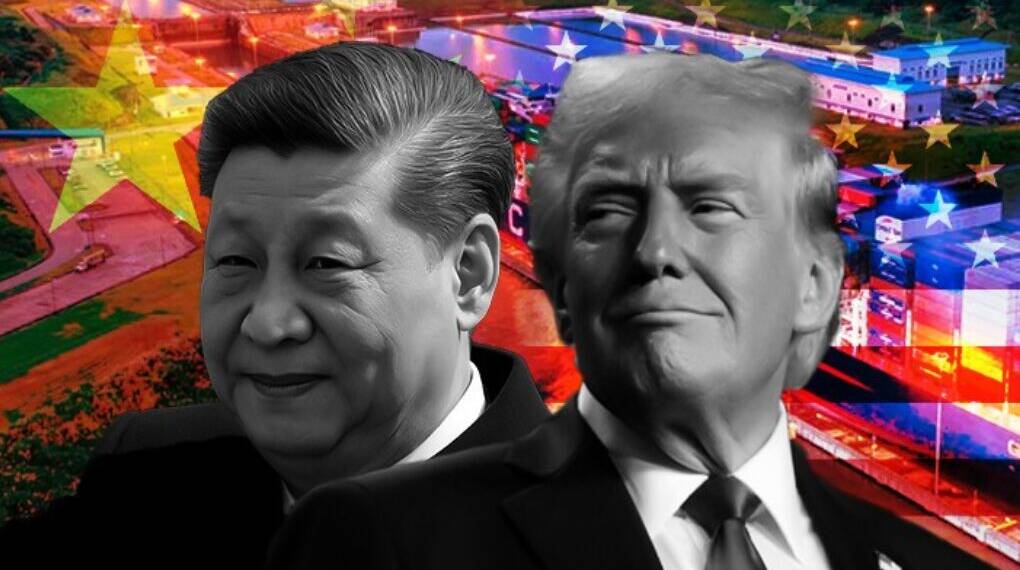The Panama Canal, an engineering marvel and one of the world’s most vital trade routes, is becoming a key flashpoint in the ongoing power contest between the United States and China. Recent developments suggest that China may be poised to gain greater influence over the canal’s critical port infrastructure following the collapse of a $23 billion deal between U.S.-based BlackRock and Hong Kong’s CK Hutchison, the current operator of Panama’s two busiest ports located at each end of the canal.
The Panama Canal’s Global Importance and Control Dynamics
Completed in 1914 and officially handed over to Panama in 1999 under the Torrijos-Carter Treaties, the Panama Canal remains a crucial gateway for global maritime trade. It connects the Atlantic and Pacific Oceans, dramatically reducing shipping times and costs. Given its strategic location just south of the United States, control and influence over the canal have major geopolitical and economic ramifications.
CK Hutchison, a Hong Kong conglomerate owned by billionaire Li Ka-shing, has operated the key ports of Balboa (Pacific side) and Cristobal (Atlantic side) since 1997. While Panama manages the canal itself, these ports are vital for container handling and shipping logistics. The involvement of a Hong Kong-based firm under China’s expanding political and economic influence has raised concern among U.S. officials and policymakers about China’s growing foothold in the region.
Also Read: Donald Trump threatens to take over the Panama canal
The Failed BlackRock-CK Hutchison Deal and China’s Stake
The proposed deal, which reportedly involved transferring ownership of 43 ports across 23 countries including Panama’s two vital terminals, sought to form a consortium involving BlackRock, the world’s largest asset manager, and MSC, a major European shipping company. The deal was initially welcomed by former U.S. President Donald Trump, who framed it as a step toward reducing Beijing’s influence over the canal and even floated ideas of America reclaiming direct control over the waterway.
However, China strongly opposed the original arrangement. Beijing pushed for its state-owned shipping giant Cosco to be included in the deal, signaling a clear desire for direct involvement rather than an indirect influence through Hong Kong’s Hutchison. Under mounting Chinese pressure and facing the prospect of an anti-monopoly investigation, CK Hutchison let the exclusive negotiation window with BlackRock expire. Although the company expressed an openness to restructuring the deal to include a significant Chinese investor, this outcome effectively bars BlackRock from breaking into the crucial canal ports now.

Rising U.S. Concerns and Trump’s Position
The expansion of Chinese influence in Latin America, especially around the Panama Canal, has been a bipartisan concern in Washington for years. Former President Donald Trump has been an outspoken critic of China’s role in Panama’s infrastructure and has repeatedly accused China of “operating” the canal via its control of key ports.
Trump’s rhetoric intensified when he openly demanded the U.S. “take back” the canal, lambasting Panama for imposing what he called “exorbitant charges” for canal usage. He has argued that China’s emergent control threatens U.S. national security and freedom of navigation. Trump even suggested military intervention as a last resort, reflecting the high stakes involved.
Despite this, the reality on the ground suggests China’s influence is only set to deepen. CK Hutchison’s linkage to Beijing’s interests, combined with the collapse of the BlackRock deal, means China is likely to maintain, if not expand, its indirect control over this critical infrastructure.
China’s Growing Footprint in Latin America
China’s footprint in Latin America has grown substantially over the past two decades through trade expansion, investment, and infrastructure projects aligned with Beijing’s Belt and Road Initiative. Panama, due to its canal and port significance, is a central node in this network.
The Chinese government’s support of entities like CK Hutchison and Cosco facilitates Beijing’s ability to wield influence over the region’s logistical arteries. This poses critical challenges for the U.S., which has traditionally regarded Latin America as its sphere of influence and a strategic buffer zone.
Experts and U.S. officials, such as Senator Marco Rubio, have warned that Chinese-controlled ports could potentially be used as dual-use facilities, capable of being militarized or leveraged in geopolitical conflicts. This risk heightens scrutiny on Chinese investments in the Panama Canal zone, raising fears of potential choke points that could be closed in times of tension, disrupting global trade and restricting naval mobility.
Panama’s Delicate Balancing Act
Panama itself aims to maintain sovereignty and neutrality despite external pressures. Panama’s government insists the canal remains firmly under national control without foreign military presence. It has publicly denied Chinese interference in canal operations, emphasizing the canal’s neutrality and Panama’s partnerships with the United States and other global powers.
However, Panama faces a difficult challenge. It must balance lucrative economic ties with China, including infrastructure investments and trade, against demands from the United States to curtail Chinese influence. The canal’s ongoing stability and security are paramount not only for Panama’s economy but for international trade and geopolitical equilibrium.
Also Read: Trump sinks China’s American ambitions, as Panama withdraws from BRI
A New Era of Geopolitical Contestation Over the Panama Canal
The expiration of the BlackRock-CK Hutchison deal marks a significant moment in the further embedding of Chinese influence over key Panama Canal port operations. Through this and other mechanisms, China is deepening its strategic presence in one of the world’s most pivotal maritime corridors.
The United States, caught between diplomatic efforts and threats of assertive actions, faces mounting challenges to its traditional dominance in the region. President Trump’s assertive calls to reclaim the canal testify to the symbolic and strategic weight of the issue, but current dynamics indicate that Beijing’s influence will persist, shaping future trade flows and power balances in the Americas.
As the U.S. and China continue their broader great-power rivalry, Panama and its canal remain a critical chessboard in global geopolitics—a place where economic ambitions, national security concerns, and international diplomacy collide.







